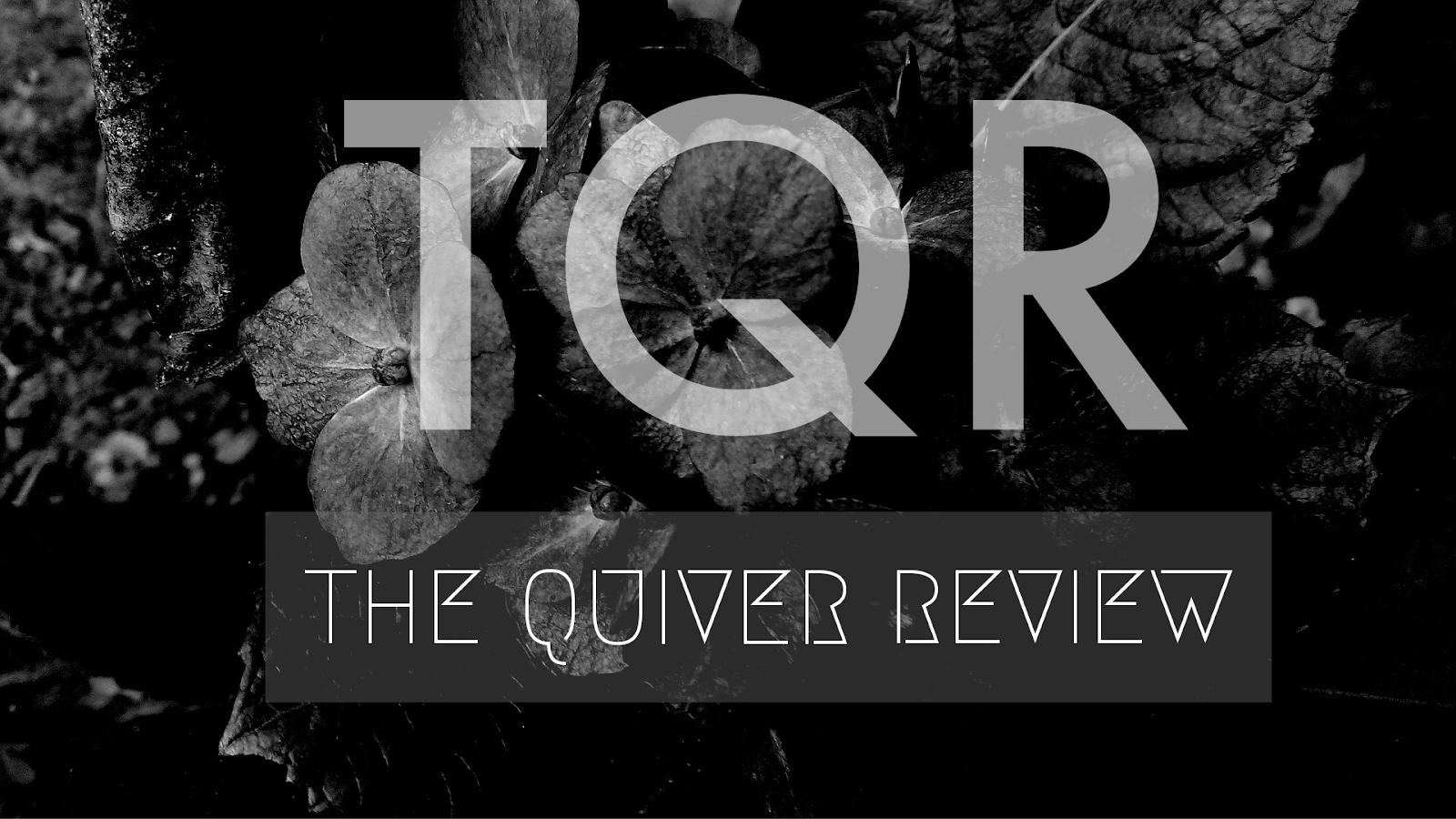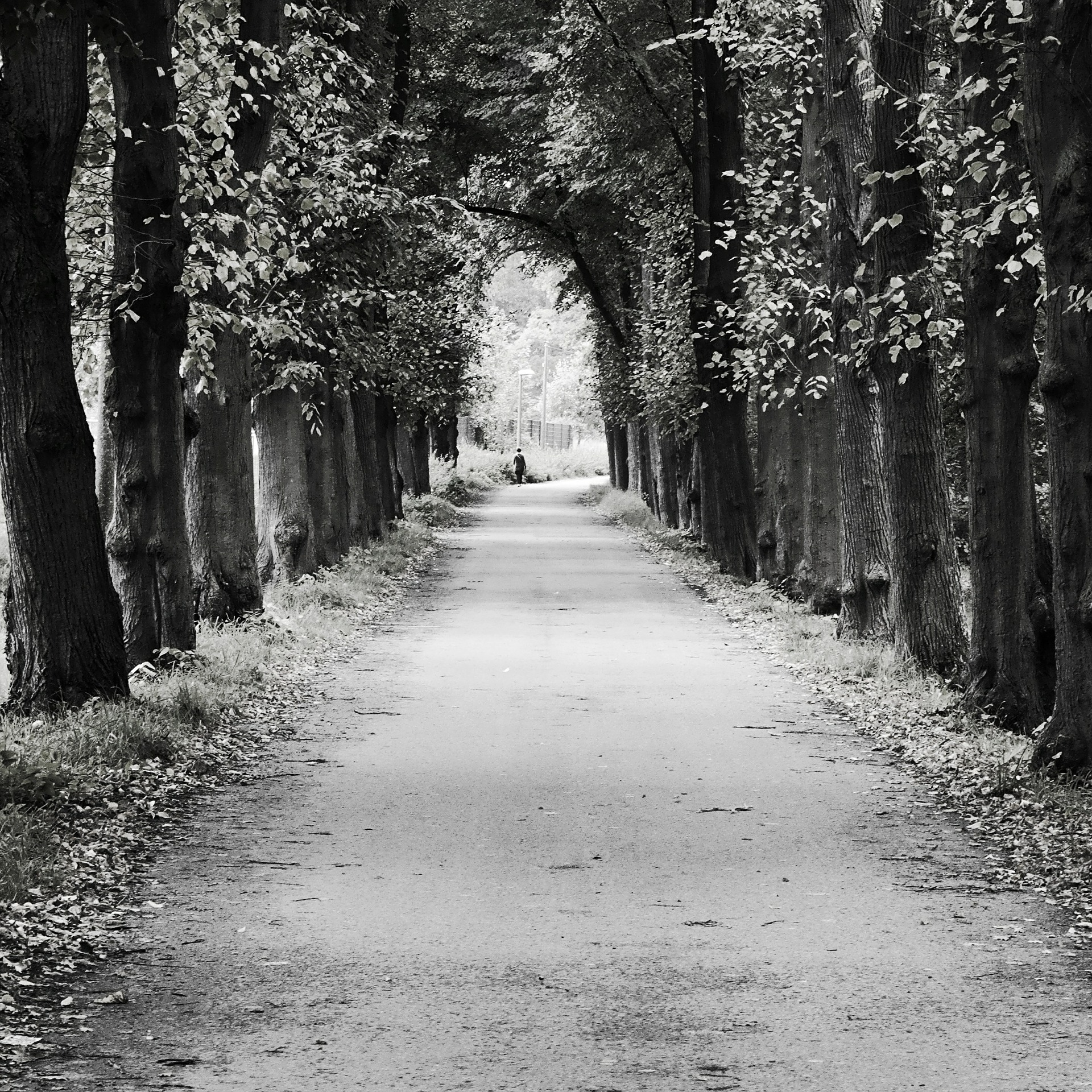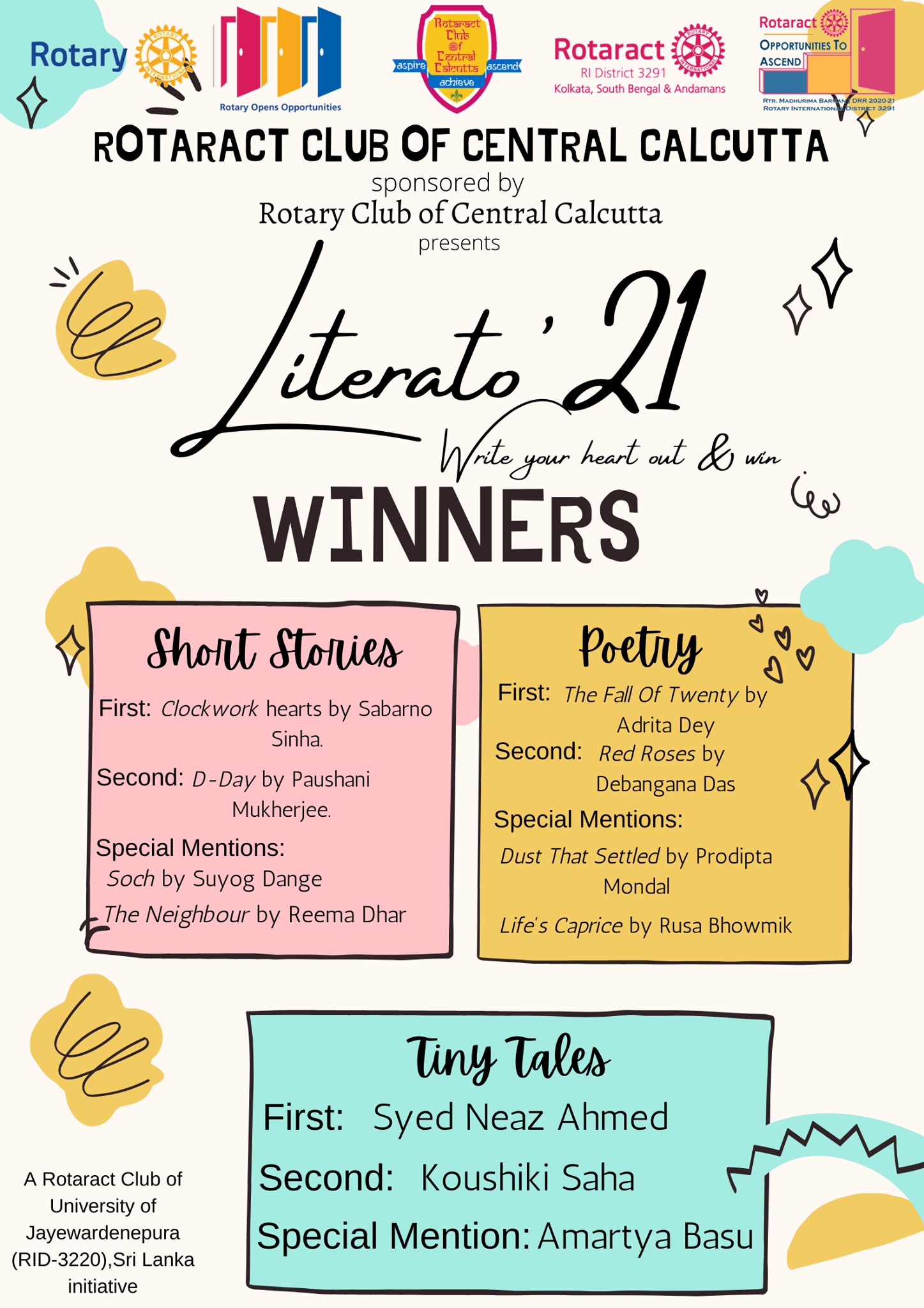When Life in Death Survives by Chitra Gopalakrishnan
Author profile: www.
I cant say how long my immobility lasts. I remain thusly suspended, susurrated, fogged, finding it difficult to be sure of what is close or far, or there or not there, yet I enjoy the exhilarating sense of space, the feeling of inviolable solitude, its insular narrow security.
After an indeterminate period of time, from the inside of this muffled murk, I sense waves, then hear them rise and crash, some place remote. The best description I can give you of my experience of is of a low-volume buzzing on an empty television screen.
My being sits zizzed in this space till it is rocked by vibrations, first too slow, later too fast, and then with an irregular rhythm, sometimes fast, other times slow. In my state of arrhythmic flurry, where my pulse oscillates indeterminately, I feel a heat build in and around me. It, too, zigzags dementedly. This is soon followed by an amalgam of dot graphics, meaningless, and of no consequence, that begin to appear in my mind, behind my closed eyes, only to gather shape after a while.
This experience requires me to have a very specific kind of attention to allow these figures to appear. I need to be completely on the other side with them, and at the same time completely not there. I know I risk ridicule by saying things that are the opposite of each other, and that I sound bizarre, like someone who has spent a lot of time on their own, and gone to a weird place. But such as it is, it is my truth, my living truth.
But I know at least many of you will at least agree that there are certain experiences that are impossible to describe satisfactorily, which you can only know by having them yourself. So lets use this as an entry point into my narrative, its otherworldly contours, its hyper-dimensional and hyper-spatial zones, where I come into contact with external-to-our-world entities, landscapes, and intelligences.
A smiling lady dressed in a peacock-green sari swims into my vision, undulating as if in a dance, and her weightless gliding keeps me entranced. Though she is initially silent, her aura is spectacular. Scintillating is the right word. Her hair that is spun into a bun, and poised on the side of her head, is strung with layers of jasmine flowers, and their perfume finds its way to me mixed with the warm enticement of south India.
Then I hear the sound of her anklets, the tinkle of each one of its tiny bells, its every snap. And further her voice. She rasps the name Sarla to me, and points to the golden chain she wears around her neck, one with a rather large, distinct green-and-white enamelled pendant. Even as she does this, smoke spirals emerge from around it like elongated soap bubbles. The gold chain turns into a garland of leaves, the sacred tulsi leaves.
I know I dont need to understand her or her gestures. The messages of people, like her, from the other side, from the higher dimensions, are never for me. They are always for others. For people I dont know, have never met, and will in all probability never meet again. I would need to search out the person in my audience in New Delhi that Sarla, or her disembodied consciousness, intends her message for.
Life and death are conventionally considered split opposites, and downright antagonistic to one another, but they meld in my work; in my terrain, as a medium, an intermediary between these two worlds, one that entertains a coincidence of the two. It has been thus in my childhood in Lucknow, in the northern Indian state of Uttar Pradesh, and continues well into my forties, into my life in New Delhi, the capital of the country.
I don't really remember a time not having the ability to see spirits. I initially did not understand what the fuss was all about as I believed it to be normal, and thought everyone spoke to people who no longer lived in our world. Beings who have passed to the other side, what we call death, and they a continuum, beam me their messages, through images, smells, and words, sometimes singly, other times using all these elements, to allow an architecture to rise up for me. I am meant to merely observe these elliptically-styled messages, and find the person for who it is meant to make sense of it. Rooting for it or against it is not my business. As much seeking-out of astonishment for its own sake is out of bounds for me.
I have over some years learnt to be comfortable in this intangible line of work, in my space of ambiguity and contradictions. When it actually sank in that people on the other side dont speak to others as they do to me, I began to fear the unknown as I began to fear myself, and my cross and taciturn family, all in equal measure.
I am my parents only child, and I saw how fearful, and deeply disappointed they were to see their son hover between two worlds at the age of ten, with some kind of twisted, secret complicity between both sets of beings. They could not fathom why a teeny tiny boy from a high caste, who should have been engrossed in decimals and fractions, would take this reckless turn to engage with chimaeras, outlandish, illusory creations, best left to grave diggers and their ilk, as I overheard my father tell his friend in a broken voice. It was incomprehensible to them as it was monstrous.
I remember my father to be a thin, frail yet energetic man with a strangely large head. He was on most occasions an uncommunicative man. But on days that I paid attention, and looked beyond his thick-rimmed glasses, I realised he was fairly predictable, simply because he was single-minded in all his actions. His fixed expressions and actions could have stemmed from the fact that the infrastructure of fathering was limited in my times, or perhaps because he was like that. Whatever be the reason, he was never available to me.
Yet beyond his non-committal, crushingly drab, incurious exterior, I did see, even at that age, that he was vulnerable to the pressures of his daily life, his reserve turning to stress when he found himself unable to pay a bill. Or finish a task. I can now understand why my unorthodox visions shook him, made him hysterically angry. He craved stability, and down-to-earth daily routines more than anything else, and was acutely uncomfortable with irrationality of any kind, within himself or others. He did I guess see strains of it in his mother but to see illogicality to this extreme in his own child must have driven him insane with fury.
Today, all that remains imprinted within me is that he always wore white shirts, and pants of flat, dark colours when he went to work, and multi-coloured, patterned lungis and a plain half-sleeved shirt at home, as some kind of concession to colour, and never varied his routines of the day and night.
My mother, a tall, sleek, and even-complexioned woman, who smelt of sandalwood all day long, could have made it possible for me to talk of my visions, to her, at least. But she taught me not to talk about things that are private to me. She could have soothed my fears, my cries of pain and anguish when as a child I was pulled in to see and hear things beyond belief, and made to realise that things were bigger and more complex than what we think them to be. But she taught me not to voice my pain or hear the pain of others. She tried mostly to teach me to put away my visions inside of my schoolbag, hoping maybe that they would slip away en route to school, and the visions inside my books would instead awaken.
Though deeply religious, my sightings that went beyond her five distinct modes of perceiving the world - sight, hearing, touch, taste and smell - were hugely terrifying and shameful for her. She, I think, was torn between nurturing me, and disowning me, both options proving hard for her. Why cant you just be my little Gopal, naughty in little ways, and not like this?, she often asked, but especially so on days when she was hugely exasperated by narrations of my visions. Did she not know that Lord Krishna, who she has named me after, once showed his mother Yashoda the entire universe within his tiny mouth? I wondered but did not say.
I could finally only understand my unusual condition when my oval-faced, pallid-skinned family priest, Ganga Ram, prophesized that I was born to be a medium between the living and spirit world, and to be confounded in mind and body lifelong. He made me realize that it would be pointless to resist my calling. And that I need to understand what I am meant to do in this world.
You are sensitive, and intuitive enough to hear, feel, and see information coming from the other side, and will be all your life. You cannot evade your destiny as it has chosen you to be a medium, just as you cannot escape the fact that people close to you will never understand you, and that you will be alone, though self-contained, throughout your life," he said. My attention was on Ganga Rams words, as much as it was on his swinging ponytail, the only hair on his otherwise shiny, bald pate which seemed to gather a life of its own.
Many in my family, my parents included, of course, were furious with him. They all instead chose to believe me to be a case of the cross-wiring of the senses, one that provides a fantastic fodder for illusions. Our family doctor called it synaesthesia, and they threw their support with him. But even then, in my tender boy years, I knew the difference between helping the body, and helping the soul, and was aware that my doctor could only tend to my physical limitations, and never attend to matters of my spirit. I also had come upon the awareness that human knowledge in general is thin. Inadequate, and incomplete.
So as I persisted, in defiance of every one, over the years, in following the trail of surface of suggestions left behind for me so that I could fit it into the jigsaw of the larger, hidden truth, my family clipped themselves away from my life, bluntly, abruptly.
As did my childhood friends. Do you see things other people cant see? Do you hear things other people cant hear?, they would often ask incredulously. The fact that I could neither be a child or just their silly friend, I guess was repugnant to them, and my metamorphosis, though outwardly exciting to their little hearts and minds, was too frightful to be acceptable in reality. I decided not to allow them to toy with my agony any longer.
My road that forever lost boredom with all its pastel normalcy, its safe uneventfulness, was lonely and scary to begin with, with a free-floating dread ever-present. Though I knew with a deep certainty that people over there were here once, just as we are now, and that they will speak to me whether I want them to or not, I was swallowed up in the black hole of my own terror, memories of my life at home clinging to me with tenacity, never slipping away for long. I fought, I struggled, I ragedagainst my parents, against the world, against my lonely fate, against myself. But I knew I had no choice but to carry on, regardless of the teetering-on-the-edge-of-a-cliff feeling, and face the unknown by myself fully, in its entirety.
I found acceptance in my grandmothers, my fathers mother, ancestral, village home in Hardoi, a hundred and ten kilometres from my home in Lucknow, when I was sent to live with her. In fact, she insisted I be sent to her for caregiving as soon as she learnt of my predicament, and the discomfort of the others with it. She was a woman who knew that when people pass to the other side, they take their days and nights with them as they do their dreams. This fact was as normal for her as it is for me. She herself passed on to the other side ten years ago but I hear from her every now through small signs when I am disturbed. The radio playing a lullaby she used to sing though I never knew them to be recorded by any singer. The smell of camphor invading my senses, one that she lit on a plate for her deity every morning, despite never having lit one square, translucent slab myself.
To me, she was a wonderful woman who could, when she was here, shoo-away darkness, bewilderment, and pain for me with her soft, washed-out sari, as she could help me gain a hold on my fears. She also had the special ability to make water and sunlight meet above my head with her magical stories. Ones she shared with me as with a burble of pigeons that cooed on her parapet. And she is a woman who continues to connect with me till date, through small signs and signals, across vast and unforeseen margins, and nurture me with her wisdom-soaked lullabies.
Does anyone here in my audience relate to a woman Sarla? I ask. A danseuse, I add as an afterthought. There is a moment of quiet. Then I hear a womans voice, tremulous, and eager at the same time. Yes, Sarla is my mother who died two years ago. I am Nandini, she says hesitantly, by way of introduction or because she does not know what else to say.
I tell her what I have seen and heard, and her eyes blackened dramatically with kohl widen with shock. Tears pour down her cheeks, and she gathers the folds of her mustard silk sari before she says, I always wanted to know how she adjusting to the other world as her earthly body energy was always alive and high-spirited in the extreme. This is her way of telling me that she has transitioned to a higher realm, where her dance is no longer earthly but ethereal. She would often make me water the tulsi plant in our courtyard saying it is the manifestation of god in the plant kingdom."
At this point my audience of a hundred-odd people become a single organism, their energies fuse, as they try to understand the meaning of Sarlas message to her daughter all these years later.
My out-of-focus, fugue begins to set in again. I trawl again into the elsewhere, to pay attention to messages from beyond, far beyond my sonic range. I feel something in my head, in my chest, an airless suffocation, an increasing, unbearable pain. My eyes narrow, my pupils constrict, and then my nostrils flare as my nose is filled with the stink of singing flesh. I see a black feral creature with a long body, strong, nailed claws, pointed ears, sharply-chiselled teeth, and a long bush lying dead in the middle of the road, alongside a delicate, endless, light pink, ribbon-like rope. The sight is dramatic as it is harsh, and brutal. The color contrast, an iridescent light pink against a sooty black, is striking at first. Yet it becomes clear to me within moments that this is its entrails, oozed out of its abdomen like toothpaste out of a tube, and that it is death once again, merely in another color.
I see a bearded man, well-dressed in the traditional Indian attire of kurta-pyjama, appear briefly, signal pain in his head and chest, and then smile as he turns to signal a glistening sun. Then I lose my connection to these two beings, whoever they are. As I have no names, I am not sure if I can find the person for whom these images are intended.
I come back to normalcy, to my audience, and relate what I see. To my surprise, a young man stands up immediately, and without hesitation. That is my father who I was very close to. He was run over by an unknown automobile in the middle of the road, and we could neither identify the vehicle nor did any driver come forward to take responsibility. And beside him lay a palm civet as dead as he was. I guess he is telling me of his pain, and that he has overcome it now. I have never been able to come to terms with his harrowing, untimely death, and never found closure, and I have been at the point where my over-extended band of resistance could have snapped any moment. I think that I why he has come to me with a sense of urgency. Why did he point to the sun? I am curious. As a child, when I used to ask my dad the meaning of his name, Ravi, he would point to the sun.
I know I will forever be a voyager, a voyeur, an encounterer of otherness, who will move between the two worlds with far-fetched experiences like what I describe. I know I will have to interact with good and malevolent spirits in the other world, beings bearing intentions I will only partially understand, depending on what they choose to tell me. I also know my fate is to capture the meaning of their fading smudges, to bring alive something from their perfectly real world beyond the human so as to counsel a sorrowing mass of people, and to bring them comfort.
Yet as I continue to live in my world of shifting surfaces, with my gathered capacity to reflect on memories, ideas, and phenomena from novel and heightened perspectives, I often wonder if my parents will show up and surge into my frontiers? As I know they have passed on recently, and find themselves in an unaccountable universe, I wonder with a curious poignancy if they will come in search of me in my utter aloneness.
Now that they have come upon the truth of the other world, and towards the nature of my existence, are they are as restless to see me as I am to meet them? Are they ready to love me, in the way the child within me, who still lives on deep down, wants, yearns for? Will they wash away my days of brutal introspection, my long, dark nights of grim self-confrontation with their messages? Like my grandmother did and does. For after all, I am contained in my parents as they are contained in me. Will I smell the aroma of my mothers sandalwood once again? Or face my father with his impassive face, and extra-large spectacles? Or receive any sign of love from him?











Comments